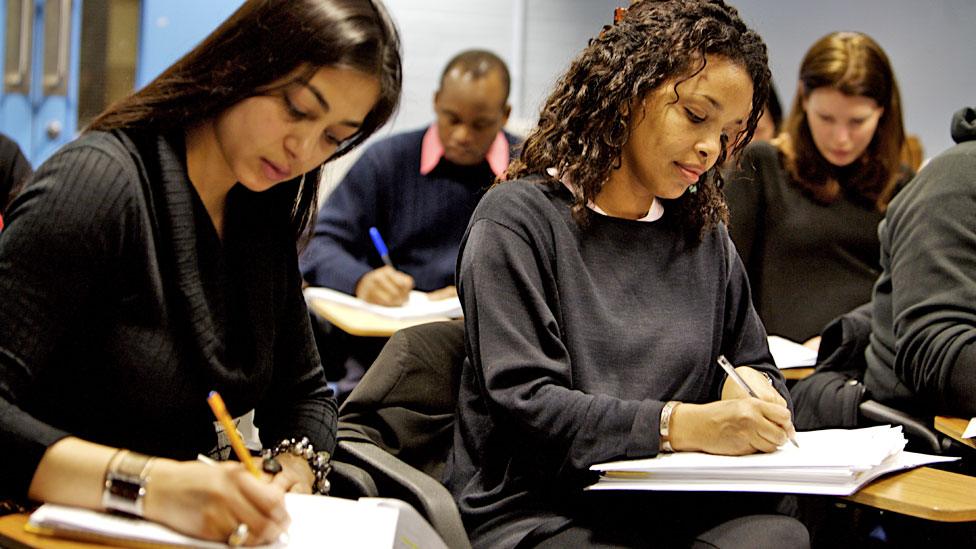'Ditch predicted grades' from university admissions
- Published
- comments

Universities in the UK should stop using predicted grades when people are applying for places, say lecturers and head teachers.
A study from the University and College Union says no other developed country uses such a system of forecasts of results for university admissions.
The lecturers say most predicted grades turn out to be incorrect.
Head teachers have backed calls for a change, saying the current approach is "no longer fit for purpose".
A study from the UCU lecturers' union has examined admissions systems from 30 major countries and found no others using the UK's approach of pupils applying on the basis of grades predicted by their teachers.
'Historical quirk'
The UCU also cites research from 2016 suggesting as few as 16% of predictions for three A-levels or equivalent had proved accurate.
Ucas, which operates the admissions system, says the most recent figures suggest predicted grades are usually higher than the actual results - with 73% of applicants performing less well than forecast by their teachers.

There are calls for students to make university applications based on results rather than predicted grades
The report from lecturers calls for an "urgent overhaul" of the application system, so that pupils would know their actual exam grades before making their final applications.
"We are alone in the world in using a system where students are offered university places based on highly inaccurate predicted grades," said UCU leader Sally Hunt.
The calls for a review of the application system - and ditching the reliance on predicted grades - was backed by the ASCL head teachers' union.
"Out of date and no longer fit for purpose, it is a historical quirk which is not mirrored in other countries and creates unnecessary problems," said Malcolm Trobe, the ASCL's deputy general secretary.
He said that there might be practical challenges - such as the timetable for applications - "but we do not believe these are insurmountable".
Unconditional offers
Under the Labour government in 2004, a review recommended a change so that pupils had their results before applying - on the grounds that it would be fairer for disadvantaged applicants.
Ministers backed the change, but the proposals were never implemented.
The idea was put forward again in 2012 - and once more were not adopted.
Universities UK says the position remained that there were "continuing practical obstacles".
Clare Marchant, head of Ucas, has spoken against changing the applications timetable.
She said it would mean "structural change to either the secondary or higher education systems".
And she warned it would be harder for poorer pupils who would have to make decisions after they had finished their exams and left school.
"It was felt that students from disadvantaged backgrounds would be less likely to have access to teachers and support in making application choices," said Ms Marchant.
The Sutton Trust social mobility charity has said the opposite - with a report saying the current system works against talented, disadvantaged youngsters.
Mr Trobe also warned about the rise in unconditional offers to university applicants - in which universities say they will admit a student regardless of their exam results.
"This practice can demotivate students and lead to underperformance in these important qualifications, which disadvantages them if prospective future employers take their A-level grades into account," he said.
- Published19 December 2017

- Published8 December 2016
